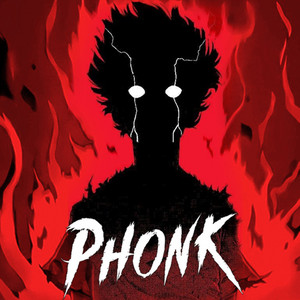Phonk Music Origins: A Journey into the Sound
Phonk music, an underground genre that blends hip-hop, lo-fi beats, and trap influences, has captured the attention of listeners around the globe. Its gritty texture, nostalgic samples, and distinct southern roots make it an irresistible force in today’s music scene. In this article, we explore the rich history of phonk music, its cultural significance, and how it continues to evolve as a powerful genre.

The Roots of Phonk Music: Southern Hip-Hop Legacy
Phonk music originated in the 1990s in the Southern United States, particularly in cities like Houston and Memphis. During this era, artists such as DJ Screw, Three 6 Mafia, and UGK pioneered a unique sound characterized by slowed-down beats, chopped and screwed vocals, and heavy sampling of soul and funk tracks. These early influences laid the foundation for what would later become phonk.
The term "phonk" itself is derived from the word "funk," symbolizing its deep connection to funky grooves and rhythm. The underground mixtape culture in the South also played a critical role in popularizing this sound, as DJs would remix tracks to create darker, hypnotic beats that resonated with local audiences.
The Evolution of Phonk: From Underground to Mainstream
Phonk remained relatively underground throughout the 2000s but saw a resurgence in the 2010s, thanks to platforms like SoundCloud and YouTube. Emerging producers such as DJ Smokey, Soudiere, and Mythic began incorporating modern elements into the genre while retaining its vintage aesthetic. This second wave of phonk introduced faster tempos, trap-inspired hi-hats, and atmospheric textures, broadening its appeal to new audiences.
At the same time, visual aesthetics became an essential part of phonk’s identity. Neon imagery, anime-inspired visuals, and retro graphics became synonymous with the genre, helping it establish a unique presence in digital spaces. Social media further amplified phonk’s reach, with tracks often going viral on platforms like TikTok and Instagram.
Key Characteristics of Phonk Music
- Sampling of Memphis Rap: Many phonk tracks heavily sample vocals from classic Memphis rap records, creating a gritty and nostalgic feel.
- Lo-fi Production: The genre embraces imperfections, using intentionally low-quality audio samples and distorted effects to enhance its raw energy.
- Cowbell-Heavy Beats: A signature element of phonk is the frequent use of cowbells, adding a unique rhythmic flair to the tracks.
- Chopped and Screwed Elements: Slowed-down tempos and pitch-shifted vocals pay homage to DJ Screw's pioneering techniques.
- Trap Influences: Modern phonk often incorporates trap drum patterns and basslines, bridging the gap between old-school and contemporary sounds.
Modern Phonk and Its Global Influence
Today, phonk has transcended its Southern origins, gaining international recognition. Producers from countries like Russia, Japan, and Brazil have embraced the genre, blending local flavors with its signature sound. Tracks like "Overdose" by Freddie Dredd and "Murder in My Mind" by Kordhell have introduced phonk to a broader audience, further solidifying its place in modern music.
The rise of drift phonk, a subgenre inspired by car culture and drifting, is another testament to its global reach. Drift phonk features faster tempos, energetic beats, and automotive-themed visuals, making it a favorite among car enthusiasts and gamers alike.
Phonk’s Cultural Impact
Beyond its sonic appeal, phonk has left an indelible mark on popular culture. Its raw, rebellious energy resonates with younger generations, offering a countercultural alternative to mainstream music. Phonk's aesthetics also inspire fashion trends, with fans often adopting a retro-futuristic style that complements the genre’s visual themes.
The Future of Phonk Music
As phonk continues to evolve, its fusion with other genres promises exciting possibilities. Artists are experimenting with elements of jazz, electronic music, and even pop, pushing the boundaries of what phonk can achieve. Additionally, the growing accessibility of music production tools allows aspiring producers to contribute to the genre, ensuring a steady stream of fresh talent.
Phonk’s enduring appeal lies in its ability to balance nostalgia with innovation. Whether through underground mixtapes or viral social media hits, it remains a testament to the power of grassroots creativity.
